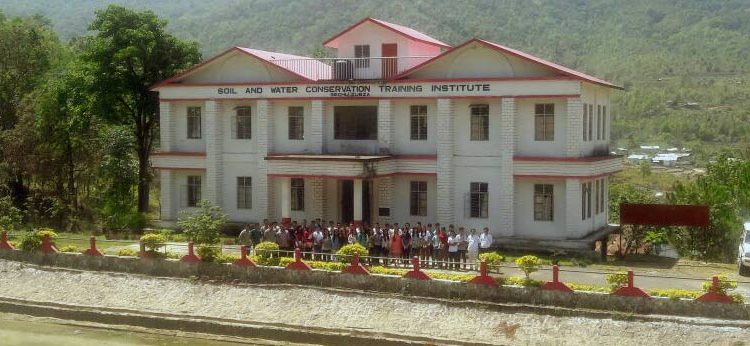EDUCATION, TRAINING, RESEARCH & DEVELOPMENT:
Soil and water conservation is an integral part of sustainable natural resources management and sustainable agriculture. Thus capacity building and human resources development in the field of soil and water conservation technology is of permanent importance particularly for hilly region like that of Nagaland. The Department, therefore, established its Research and Training Centre at Sechu, Kohima wherein the three categories of training viz; pre-inservice training for field level non-gazetted staff (Soil Conservation Assistant), in-service training and farmers training are conducted on regular basis. Study tours within and outside the State are also conducted in each of the training programmes. The Soil Conservation Assistant course is of 2(two) years duration and 17(seventeen) batches have passed out till date. The 181h Batch is presently undergoing the training course with a total of 23 trainees in the Centre In addition, some research and demonstration plots particularly on sustainable farming have been developed in the Centre. Even the basic infrastructure such as administrative building, training hall, laboratories, hostels etc. are also been up-graded during the 11th Plan period.
Building on the strength achieved during the 11th Plan period, the Department intended to widen the activities of the centre further by conducting more training at Regional levels in addition to the normal trainings and conduct farmers participatory action research and demonstration in different agro-ecological zones of the State. For this, runoff plots of bigger sizes with excess runoff collection storages and distribution system will be developed in the State Soil and Water Conservation Research, Training and Demonstration Centre, Zubza and other Agro Ecological zones of the state. Different in-situ moisture conservation measures will be evaluated in the cropped runoff plots and soil moisture, runoff and sediment loss will be monitored after every storm and periodically. Crop growth and yield contributory characters, changes in physical and chemical properties of soil, nutrient in the runoff water, seepage and evaporation losses and runoff recycling for life saving/supplemental irrigation will also be monitored. The in-situ moisture conservation treatment including traditional methods will be tried for the most suitable rain-fed cropping sequence of the region.
The data will be processed to find optimum balancing of rainwater and for development of rainwater management models of different types of the catchments in the watershed. Viable technology will be developed for maximum use of rain water in different watersheds and will form a basic part of the watershed development package.

